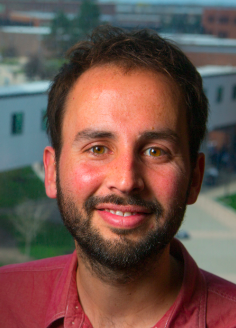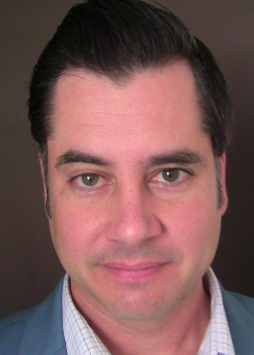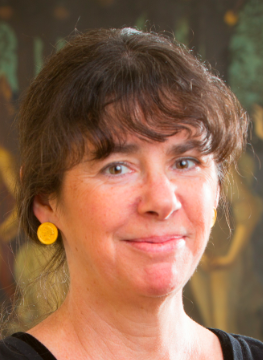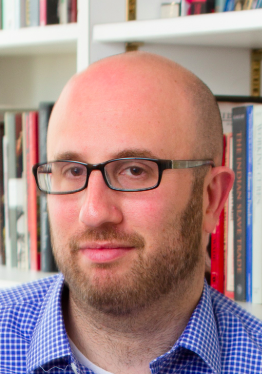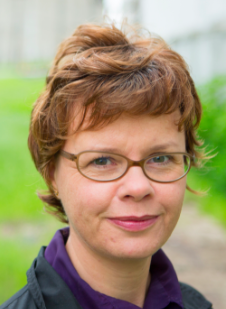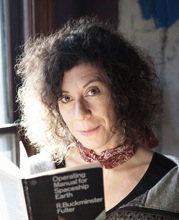2014-2015
David Alff
Assistant Professor
English
The Wreckage of Intentions: Projects in British Culture, 1660-1730
My manuscript investigates the idea of projects, concrete yet incomplete schemes for advancing British society during the 1600 and 1700s. “Project” in these centuries meant both a unit of human endeavor and a genre of writing for proposing new enterprise. While these documents anticipated their realization through material action, the period’s archives swell with defunct proposals. When certain ventures succeeded in establishing institutions in fields like experimental science and banking, their project status—their ability to come or not come into being—was typically forgotten, as uncertain endeavor hardened into the empirical fact of achievement. My goal is to recover the lost potential of a broad spectrum of projects, from ventures that failed obscurely to ones so effective at proposing aspects of the future, even our present, that it is hard to remember these undertakings were ever projects. At stake in recognizing the uncertain prospects of old schemes is a fuller historiography of eighteenth- century Britain derived from the texts of speculative proposals rather than the hindsight of progress narratives, and a more detailed rhetorical understanding of writing that sought to manipulate reality and its conditions of possibility.
Steven Hoffman
Assistant Professor
Sociology
Gadget Guys and Their Thinking Machines: Scientific Knowledge Production in an Era of Academic Capitalism
The idea that academic science can be an “economic engine” has become mantra among most American elected officials and policy makers. Drawing on a three-year ethnography of two Artificial Intelligence (AI) labs, I step directly into the spaces where faculty researchers negotiate the increasingly blurry lines between science, industry research, and consumer markets. Across a series of publications aimed explicitly at an interdisciplinary audience, I demonstrate how faculty and graduate student researchers negotiate these fraught boundaries by recasting what counts as scientific knowledge into claims of both epistemological insight and market readiness. My findings, grounded in the science studies tradition of close analysis of everyday bench science, provides an opportune vantage from which to intervene in the ongoing debates over the impact of academic capitalism on the production of scholarship, teaching, and the public good mission of the 21st century research university. More generally, my project contributes to the “cultural turn” in sociological research that is in dialogue with developments in the humanities, taking seriously interpretation, framing, and subjectivity in the analysis of institutional change.
Jonathan Katz
Associate Professor
Visual Studies
Art, Eros, and the Sixties
This book is the first to consider the import of the concept of Eros in the heyday of body art internationally. Between the late 1950s and early 1970s, and in cultural contexts as radically different as Japan, Brazil, the US and the UK, Eros became the ground for a new global politic of social liberation, deploying quasi-Freudian notions of polymorphous perversity as solvent to the era’s multiple repressions. As expounded by theorists such as Herbert Marcuse and Norman O. Brown, Eros could refashion the brute, material body into the privileged vehicle of social liberation, making it available to a new politic of collective emancipation. This version of Eros was specifically not genital or sexual pleasure, but rather something more akin to Freudian notions of the “oceanic feeling.” And the body it elevated was vastly different than the body as it is not conceived, especially vis-á-vis body art today. Eros instead held fest to an ideal of a universal body-in-common, one that was quite specifically ungendered, unsexed, and unraced. Throught capable of countering the capitalist denigration of the body as a mere instrument of work with a seductive image of the body as an instrument of pleasure, this universal body was made the material vehicle of a transformative social vision rooted in sensuous communion. Through politicizing the body while obfuscating its signs of differentiation, the art of Eros thus paradoxically engendered the very specific contemporary social categories like feminist and queer that now obscure Eros’ formative and foundational role. But in understanding this moment according to current identity politics, we have misunderstood not only much of this art, but more importantly, how and why a politics of commonality was soon replaced, as it continues to be in our own time, by a politics of difference.
Jonathan D. Katz works at the intersection of art history and queer history, one of the busiest intersections in American culture, and yet one of the least studied. A specialist in the arts of the Cold War era, he is centrally concerned with the question of why the American avant-garde came to be dominated and defined by queer artists during what was perhaps the single most homophobic decade in this nation’s history.
Frederick Klaits
Assistant Professor
Anthropology
Life for Life: Moral Economies of Care in East Buffalo’s Charismatic Churches
I am proposing ethnographic research for a book project exploring how members of predominantly African-American charismatic Christian churches in Buffalo make tithes and donations in order to secure material and spiritual benefits for themselves and others. In a context of impoverishment, many believers hope to receive “blessings” from God by “planting a seed in the Kingdom” in the form of substantial cash offerings. Pastors say that these gifts are used to expand church infrastructure, and to accommodate parishioners’ direct requests for material assistance. My hypothesis is that believers regard tithes and offerings not merely as expenditures but as forms of work that they must perform to bring about well- being for themselves, their families, and their communities under circumstances that deeply jeopardize them. I expect popular debates about the meanings and merits of these offerings to turn on the perceived significance of giving life (construed as a substantial portion of one’s assets) to God in hopes of receiving life (construed as survival, prosperity, healing, salvation, and/or supportive kinship relations). Thus, my project asks how persons who are valued on a systemic level largely insofar as they can be exploited by capital create rubrics for valuing their own and others’ well-being.
Martha Malamud
Professor
Classics
On His Return: Rutilius Namatianus’ De reditu suo. Translation and Commentary
I propose a translation of Rutilius Namatianus’ De reditu suo, with introductory essay and commentary. The book is under contract with Routledge. The poem recounts the author’s journey from Rome to Gaul in 416 CE, and provides the only extant non- Christian account of the effects of the Gothic sack of the city in 410. The essay will explore Rutilius’s place in several intellectual and literary traditions—for this is a sophisticated piece of literature that both draws on the rich tradition of classical Latin poetry and reflects the distinctive formal features of late antique poetry. With its vivid descriptions of sailing, accommodations, and the types of people encountered in the journey, De Reditu Suo provides fascinating insights into travel and communications networks in the fragmented world of the fifth century. Speaking across the centuries, it conveys the thoughts of a man devoted to Rome and its cultural heritage, enmeshed in the tumultuous political and social upheaval of his day, and torn between his responsibilities for the city of Rome, as a Roman magistrate, and for his estates and tenants at home in Gaul—a man coming to grips with the disintegration of the world as he knows it.
Adam Malka
Assistant Professor
History
The Rights of Men: Slavery, Policing, and the Making of the Liberal State, 1812-1870
The Rights of Men provides a close study of policing and punishment in nineteenth-century Baltimore. Engaging in widespread humanistic debates on state formation, criminal justice, and liberalism, it argues that slavery provided a critical context for, and played a central role in, the creation, development, and evolution of liberal state governance. In the process it tells three interwoven histories: 1) a political history of Baltimore’s police profession, specifically in regards to the rise of a professional police force and reformative penal institutions; 2) a social history of vigilantism, usually white male vigilantism; and 3) a legal history of slavery, including an assessment of its formative impact upon American conceptions of the marriage and wage contracts. These histories, taken together, produce a ground-level view of the construction of the liberal state. Assessing mayoral speeches, city council correspondence, newspaper editorials, judicial decisions, penal reports, and ordinary letters, and providing a street-level view to a story that is typically told in abstract theoretical terms, The Rights of Men enables readers to see how unclear were the boundaries between state and white male power, how history is not always progressive, and how slavery shaped and continues to shape Americans’ most fundamental beliefs and institutions.
Miriam Paeslack
Assistant Professor
Media Study/Arts Management
Curating Berlin: Urban Photography of Unification
With this Faculty Research Grant application I seek support to conclude my book manuscript with the preliminary title Curating Berlin: Urban Photography of Unification. This book discusses urban and architectural photography in Berlin during the late 19th and early 20th century, a time when Berlin thrived as the new capital of the German Empire. This time marks both photography’s becoming a mass-medium and Berlin’s transformation into a modern metropolis, a process that had drastic social, cultural, and technological repercussions. Parts of this book have been reviewed by The University of Minnesota Press and I am proposing in this Research Fellowship application to prepare the manuscript for revision and resubmission. This will be a central step to finishing this book for tenure submission. My semester project focuses on two core issues: reworking some of the conceptual framework of the book in response to the potential publisher’s reviews; and refining the core arguments of chapter 1, “Crafting the Metropolis: Official and Representational Depictions of the City and Urban Live.”
Stephanie Rothenberg
Associate Professor
Visual Studies
Reversal of Fortune: Garden of Virtual Kinship
“Reversal of Fortune: Garden of Virtual Kinship” is a research-based artwork that takes the form of a telematics garden existing in both physical and virtual environments. The organic component is a live garden situated on a series of platforms designed in the shape of a world map while its digital counterpart functions as an electronic irrigation system located beneath the platforms that pull data from the Internet. Through their interconnection, the telematics garden makes visible the circulation of finance from the developed to the developing world as it is exchanged through popular microfinance websites such as www.kiva.org. The lifeline of the physical garden is dependent on the performance of the transactions. Microfinance is the collective pooling of resources to fund projects that would otherwise go unrealized. Projects can range from the arts to small start-ups and cottage industries to humanitarian aid with varying degrees in between. The goal of project is to explore the contradictions inherent in this new model of humanitarian activity. Although microfinance systems can achieve real material needs and empower borrowers to become successful leaders in their communities, there are also disadvantages that are oftentimes overlooked. Through the poetic gesture of a garden, the complex relationships between human life and economic growth within these new alternative economic models are brought to the forefront.
